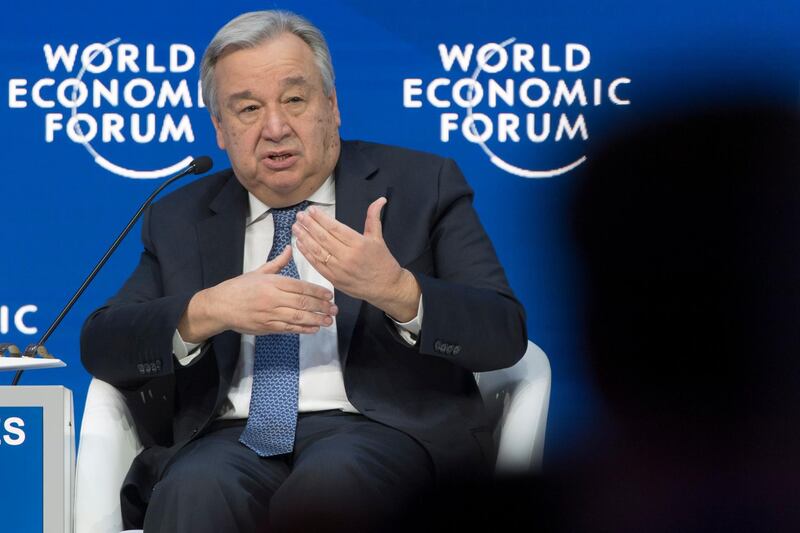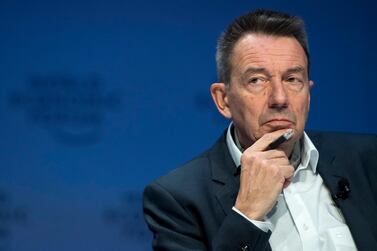The world is on course for disaster if we do not solve global problems, the United Nations Secretary General Antonio Guterres said on Thursday, laying out a plan for "inclusive multilateralism" and the future of the UN's role in the world.
Climate change is the most important problem the world faces, Mr Guterres said at the World Economic Forum in Davos, Switzerland, but also pointed to populism and technological changes as risks.
"We are in a world in which global challenges are more and more integrated, and responses are more and more fragmented and if this is not reversed we are on course for a disaster," Mr Gutteres said, delivering what he said was the state of the world in a sentence.
"The climate risk is the most important systemic risk for the future," he said. "I think we are losing the race ... we are moving dramatically into a runaway climate change if we are unable to stop it."
He feels the political will to tackle climate change is slowing down, and criticised those who doubt its existence.
Mr Gutteres warned of political trends related to global terrorism, saying the response is increasingly fragmented.
He said the world was in a "chaotic moment of transition" from being unipolar to multipolar, and mentioned worsening relations between Russia, the United States and China.
The UN secretary general criticised countries that allowed those in the "rust belts of the world" to get left behind – referring to the Trump-supporting region of the United States that is a shorthand for economically anxious populist forces.
Speaking of those left behind, he said the UN's "ideas, our policies, our programmes aim at solving their problems".
Turning to his own house, which heard calls for change at the General Assembly last year, the secretary general said the UN was reforming, and he was trying to reduce bureaucracy and increase the effectiveness of policies.
"We are pushing for a surge in diplomacy for peace," Mr Gutteres said, pointing to a UN-brokered agreement on Yemen as evidence.
Earlier, Mr Guterres said the world was "losing the race" on climate change, demanding governments make bolder commitments beyond the Paris accords, which he said were already "not enough".
The unfolding unrest in Venezuela requires dialogue and an investigation, Mr Gutteres' spokesman said on Thursday.
The country is locked in a tense stand-off after parliamentary chief Juan Guaido swore himself in as the rightful head of state with the support of nations around the region, including the United States, leaving President Nicolas Maduro increasingly isolated.
The World Economic Forum is an opportunity for business leaders, politicians and NGOs to meet to discuss the future of the global economy.
This year, the theme of the forum is Globalisation 4.0, trying to find a solution to the negative consequences of globalisation: climate change, plastic pollution, populism and privacy issues.
The United Nations plays a key role in maintaining the global political order, particularly in war zones and areas of mass migration.
Mr Guterres has also worked closely with UN Special Envoy to Yemen Martin Griffiths to find a political solution to the war in Yemen.
The secretary general supported peace talks in Sweden last year, which led to an agreement for the withdrawal of armed forces from the strategic port city of Hodeidah.
But the Houthi rebels have repeatedly violated the ceasefire, at one point shooting at the convoy of the head of the UN monitoring team, an incident Mr Guterres said he would investigate.







